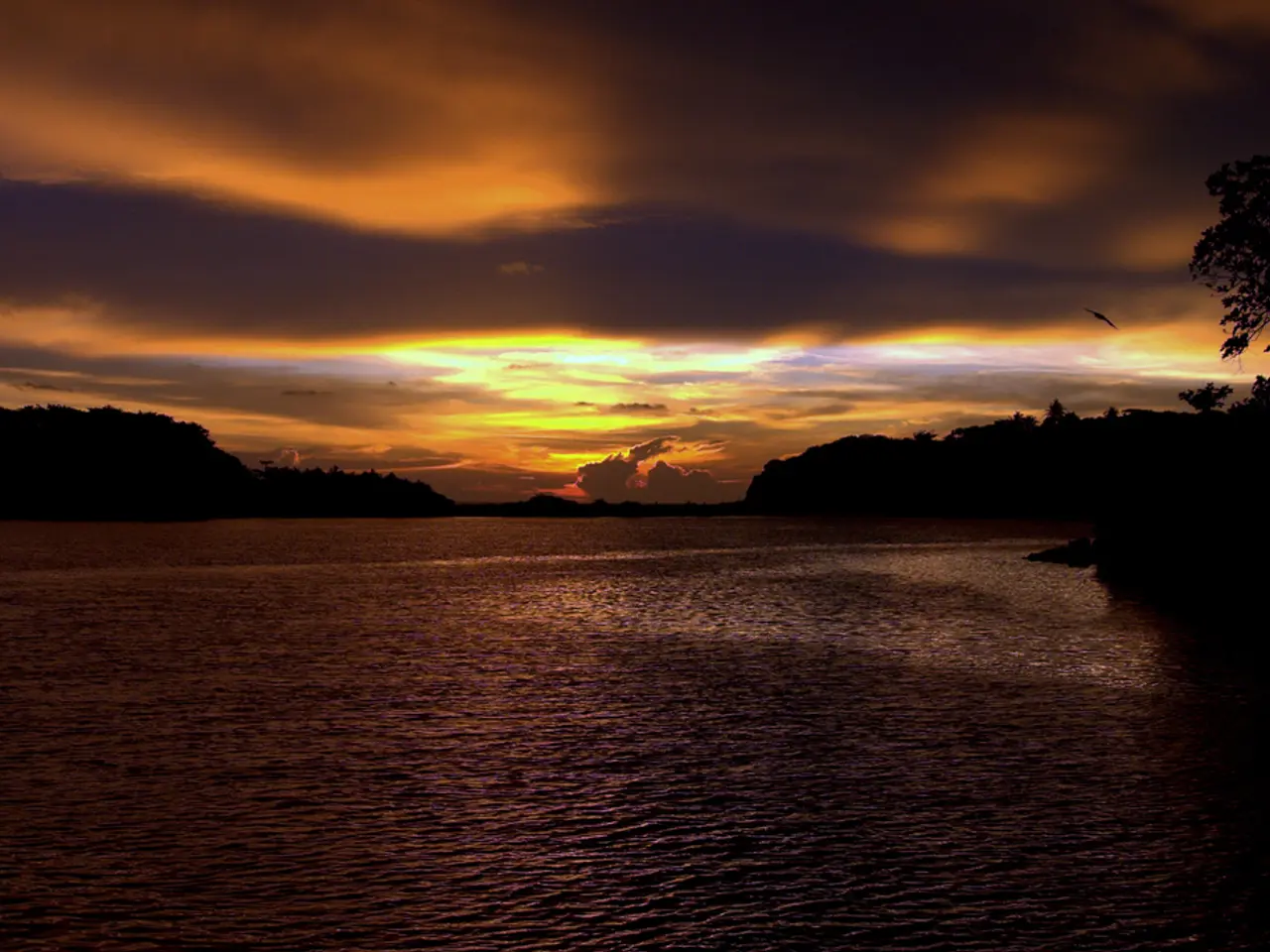Tropical Storm Eric Weakens, Causes Loss of Electricity in Mexico
Hurricane Erick Wreaks Havoc in Mexico
The raging Hurricane Erick has left a trail of destruction in its wake, particularly in the states of Oaxaca and Guerrero, Mexico.
- Image Gallery: Pacific Coast's Wrath
Originally hitting Mexico on June 19, 2025, Hurricane Erick made landfall near Santiago Pinotepa Nacional, Oaxaca as a Category 3 hurricane, packing 125 mph winds. The storm brought catastrophic winds, life-threatening flooding, and dangerous mudslides.
Notably, Erick was the first major hurricane to strike Mexico’s Pacific coast so early in the season. The storm caused torrential rains of up to 16 inches, leading to flash floods and widespread flooding inland, as well as mudslides in the mountainous areas of the Sierra Madre del Sur.
The rainfall and storm surge resulted in blocked roads due to landslides and fallen trees, disrupting transport and infrastructure. The Federal Electricity Commission reported outages caused by Erick, with about 70% of power restored shortly after the event. A tragic drowning death of a 1-year-old boy near San Marcos due to swollen rivers from floodwaters marked the first confirmed fatality linked to the hurricane.
Emergency responses included opening shelters, housing around 1,600 people, mobilizing aid teams, and evacuations especially in vulnerable low-lying and flood-prone areas.
The Growing Threat of Strong Storms
Hurricane Erick's rapid intensification from a 65 mph tropical storm to a Category 4 hurricane with 145 mph winds in under 24 hours is indicative of increasingly favorable conditions for powerful hurricanes, such as warmer sea surface temperatures. The region's Pacific Ocean waters have been notably warm, providing the energy needed for storms like Erick to strengthen quickly before landfall.
Erick is part of a recent pattern of strong hurricanes hitting southern Mexico’s Pacific coast, including Category 5 Otis in October 2023 and Category 3 John in September 2024, marking this as a new trend in an area previously unfamiliar with repeated strong storms.
This pattern suggests a shift in hurricane activity possibly linked to broader climate trends, such as global warming, which increases ocean temperatures and atmospheric moisture content, thereby fueling storms to intensify rapidly and become more severe. Terrain also plays a role: steep mountainous regions increase the risk of mudslides and amplify the destructive impact of heavy rainfall from such storms.
In simpler terms, Hurricane Erick and its aftermath highlight the dangerous impact of climate change on our planet. Warmer ocean temperatures and changing atmospheric conditions contribute to the increase in intense hurricanes like Erick, which pose a significant threat to coastal communities and infrastructure.
The rapid intensification of Hurricane Erick, as it transformed from a tropical storm to a Category 4 hurricane, may be associated with climate change, due to warmer sea surface temperatures in the Pacific Ocean providing energy for storms to strengthen quickly before landfall. This event underscores the concern that climate change could lead to more frequent and intense hurricanes, posing a significant risk to coastal communities and infrastructure.
Moreover, the occurrence of Hurricane Erick and other strong hurricanes hitting southern Mexico’s Pacific coast, such as Category 5 Otis in October 2023 and Category 3 John in September 2024, could signify a new trend in an area previously unfamiliar with repeated strong storms, possibly linked to broader climate trends like global warming. Consequently, the science of environmental and climate-change studies becomes crucial in understanding and mitigating the effects of such weather-related disasters.








